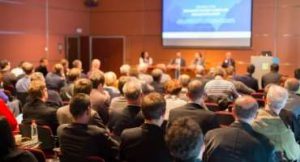Programs
SURVEYS
Lorem ipsum dolor sit amet, c-r adipiscing elit. In maximus ligula semper metus pellentesque mattis. Maecenas volutpat, diam enim.
TRAINING
Lorem ipsum dolor sit amet, c-r adipiscing elit. In maximus ligula semper metus pellentesque mattis. Maecenas volutpat, diam enim.
VOCATION LITERACY
Lorem ipsum dolor sit amet, c-r adipiscing elit. In maximus ligula semper metus pellentesque mattis. Maecenas volutpat, diam enim.
EVENTS
Lorem ipsum dolor sit amet, c-r adipiscing elit. In maximus ligula semper metus pellentesque mattis. Maecenas volutpat, diam enim.
CONFERENCES
Lorem ipsum dolor sit amet, c-r adipiscing elit. In maximus ligula semper metus pellentesque mattis. Maecenas volutpat, diam enim.
WORKSHOPS
Lorem ipsum dolor sit amet, c-r adipiscing elit. In maximus ligula semper metus pellentesque mattis. Maecenas volutpat, diam enim.
current programs
- World Day of Prayer for Vocations, April 25, 2021
- Applied Research Team for different levels: Teachers, Consecrated Religious, and Pastoral Team etc.
- National Research on VOCATION and relevant areas: media, morality, education, culture, ecological, political, economical, Law, theological, pastoral, charitable, health, tribal, Dalit, and evangelization etc.
- National Vocation Fest
- National Vocation Competitions
- National Vocation Cultural Festival
Surveys and Analysis

We conduct surveys and analysis on VOCATION issues that affect the pastoral life of the Church.
News Analysis targeting tarnishing Vocations: Our team of experts monitor all major nationally televised and print news broadcasts news and makes analysis of the same. The News Analysis Division publishes their findings regularly.
- To find out the Truth by sound scientific research
- To prove the influence of Media: in Vocations, politics, value-system, religions, and culture
- In-depth studies, analysis and reviews exploring how the Vocation is affected by media cover and distort major issues on children, youth, and parents
- To come up with true scientific data on use/misuse of communications and media in different areas: education, health, faith-praxis, politics, morals, values, crimes, etc.
- However, we do not aim at an Indian Church that merely follows polls, but we DO want one that uses survey data and in-depth interviews to understand the reality, the truthful existential state: strengths, weakness, challenges, noises and consequently to come up with concrete action plans of implementations for remedying and empowerment.
Vocation Literacy

Literacy is most commonly defined as the ability to read and write. But it’s not as simple as it sounds. Reading and writing abilities vary across different cultures and contexts, and these too are constantly shifting. Moreover, lliteracy is critical in helping us make sense of our world. From the time we wake up to the time we go to sleep, we are constantly making meaning of the world around us. Literacy has traditionally been thought of as reading and writing. Although these are essential components of literacy, today our understanding of literacy encompasses much more. Alberta Education defines literacy as the ability, confidence and willingness to engage with language to acquire, construct and communicate meaning in all aspects of daily living. Language is explained as a socially and culturally constructed system of communication.
Nowadays, ‘reading’ encompasses complex visual and digital media as well as printed material. An elderly person who can read the newspaper might struggle to get information from Google. Similarly, different cultures will have different perceptions of literacy. The writing traditions of the English language make reading comprehension an essential part of literacy, but this might not be as important in cultures or groups that rarely read printed material.
Add to this the many people who move between cultures and languages and you have a world where ‘literacy’ is almost entirely relative. Beyond the functional level, literacy plays a vital role in transforming persons in the chosen vocation into socially engaged and effective citizens. Therefore, upon understanding the various levels of literacy, on Vocations literacy is very important: Being able to read and write means being able to keep up with current events, communicate effectively, and understand the issues that are shaping our world.
Therefore, becoming effective in the chosen vocations, in becoming good workers in His harvest requires becoming literate in one’s own chosen vocation and the world where we live in. We are far behind in this literacy, especially of the religious and priestly life today.
The field of communications and media has undergone rapid transformation, at times pushing the end users into injudicious impulsive conclusions and reactions. The surfacing of print as mass medium had lead to the beginning of a new literary culture. The dawn of TV had paved the way for a mesmerizing animated image culture. However, the advent of Internet makes a drastic change in the life culture of people today all over the world. Cell phones have become ubiquitous, thanks to the feature and smart phones that their users can take photographs and videos: to the extent everyone with such cell phones can capture images now making them potential news photographers or video makers.
We should not hesitate to admit that: the impacts of media have affected catholic VOCATIONS to the core. Are we Vocation literate? Do we have the ability, confidence and willingness to engage with the world today (read and write)? Yes we need the VCATION LITERACY: to acquire, construct and communicate meaning in all aspects of daily living.
Similarly in the communication scenario of a Religious or Priest today: is he or she media educated? Media literate? Do we know the media? Or we just use the media without knowing its grammar, language, dangers and potentials?
In the theological scenario: on different disciplines that characterize our religious word, are we really literate to offer a counter alternate to the changing world of today? In the Scriptures, Spirituality, Sociological turns, Missiological thrusts, Understanding God, understanding the other, Social concerns, Religious practices, Devotions, faith living experiences etc.?
The impact of all these on VOCATIONS has been enormous, and now the newspapers and magazines are struggling to survive because people have become used to getting their news, for free on the Internet. We have iPhones, iPods, iPads and any number of incredible new devices and gizmos. Through emergence of new social networks, the real relationships give way to the seemingly comfortable virtual relationships. The new interactive media has an enormous impact in the lives of the people today: it influences our thinking pattern, beliefs, and relationships, to the point that it affects our value system and changes the society.
ARE WE really ILLITERATE on our existence as vocation?
Conferences

To help the people interested to know more about the vocations and topics related to it we organize international and national conferences in various capacities –speaker and attendees. These conferences are occasions to communicate and collaborate with social scientists, research scholars, and church leaders from various regions so as to get a comprehensive idea of different fields related to vocations and the church.
Workshops

Ongoing formation is a priority in the church now. Every vocation needs to be fostered so that that the people called never loses the ‘first love’. Constant updating of the church documents, retreats, recollections, spiritual directions help one to grow more in and know better his/her vocation. Therefore, the Rogate empowerment center offers workshops for the consecrated people at recurring intervals. Henosis, a series of reflections and study on the church documents, is organized every month completely free of cost to ensure that the consecrated people keep themselves updated with the teachings of the church. In addition, a number of workshops to develop the soft skills and technical skills of the consecrated people are organized by the Rogate empowerment center, Aluva.